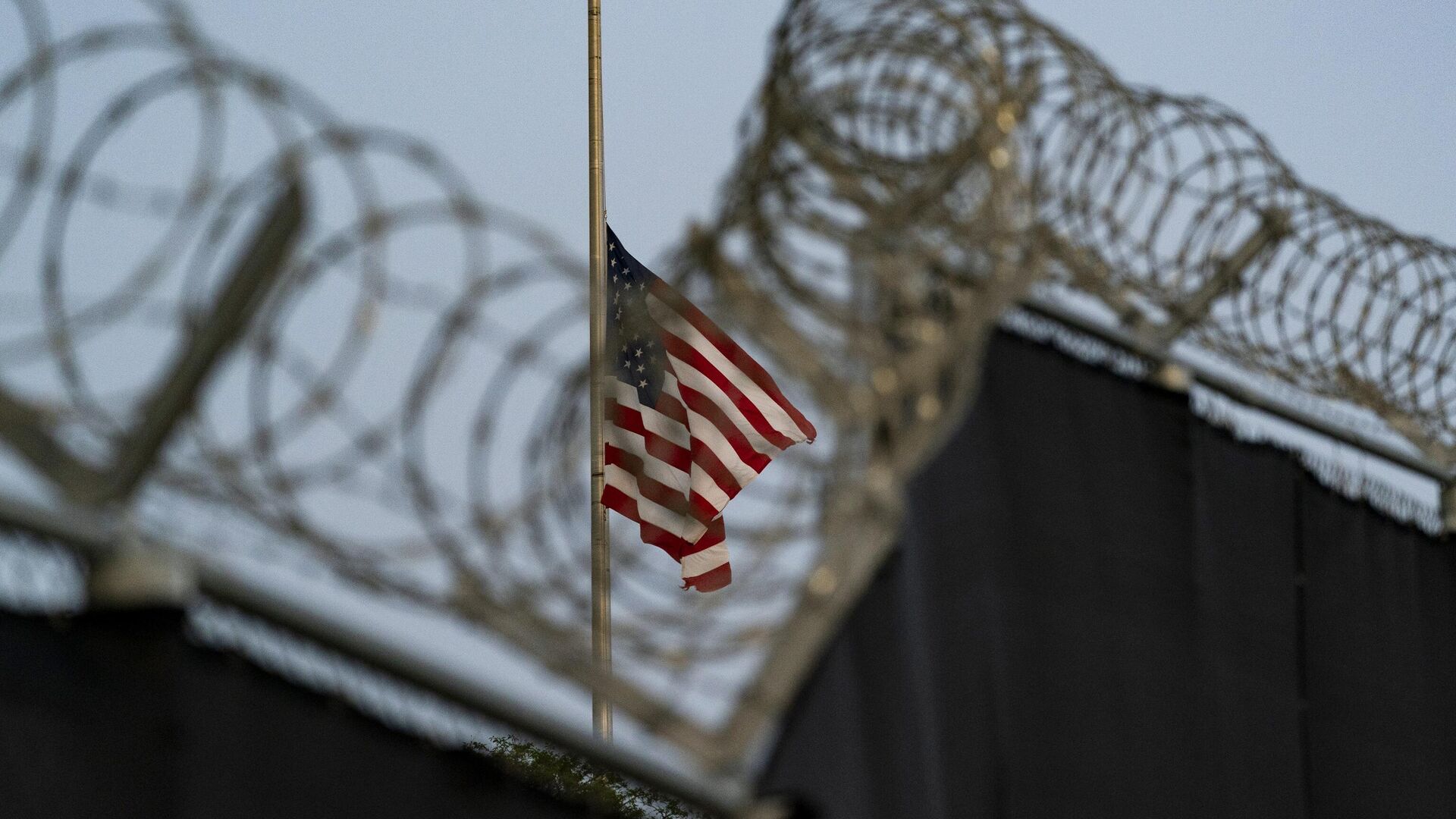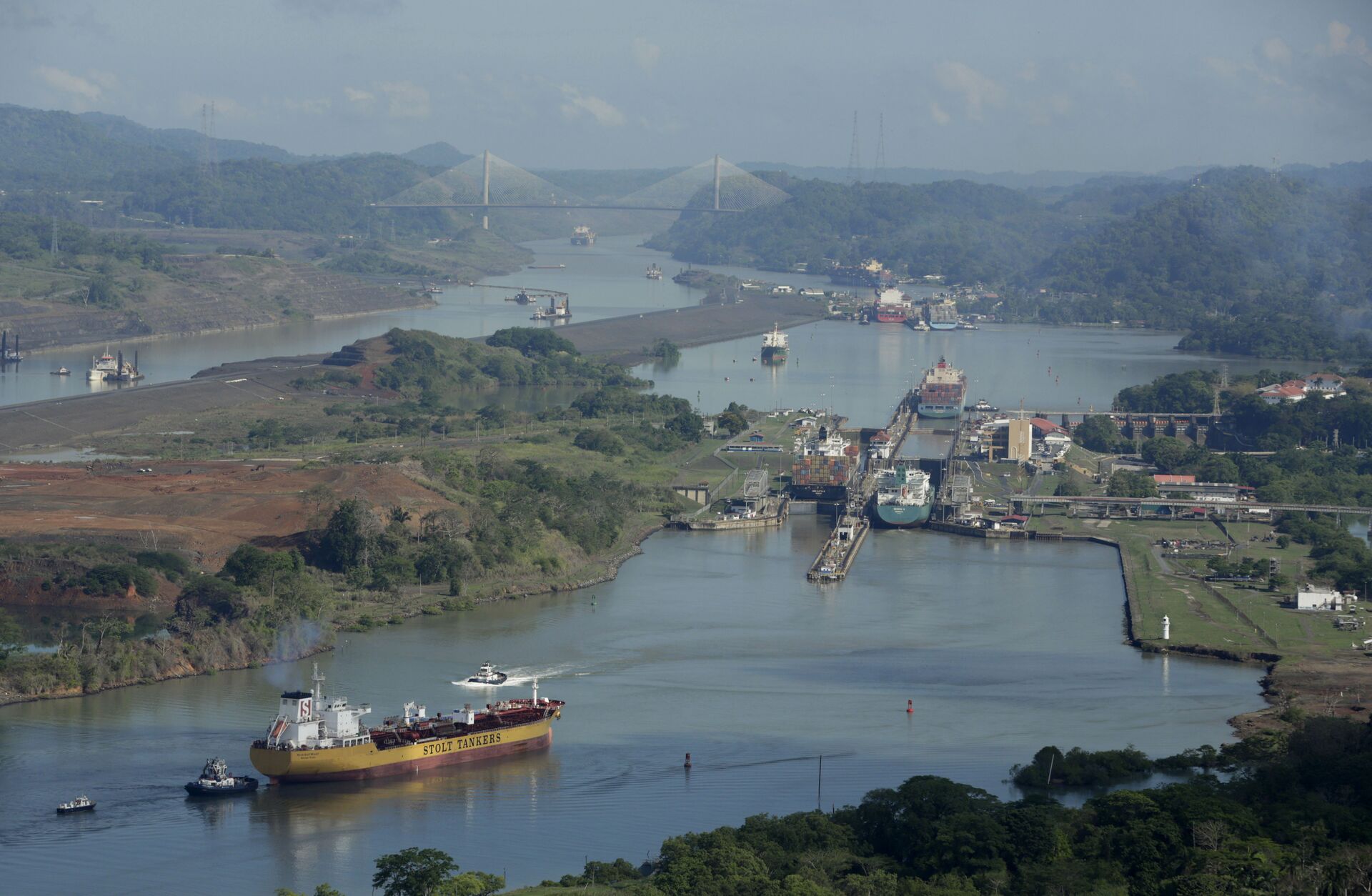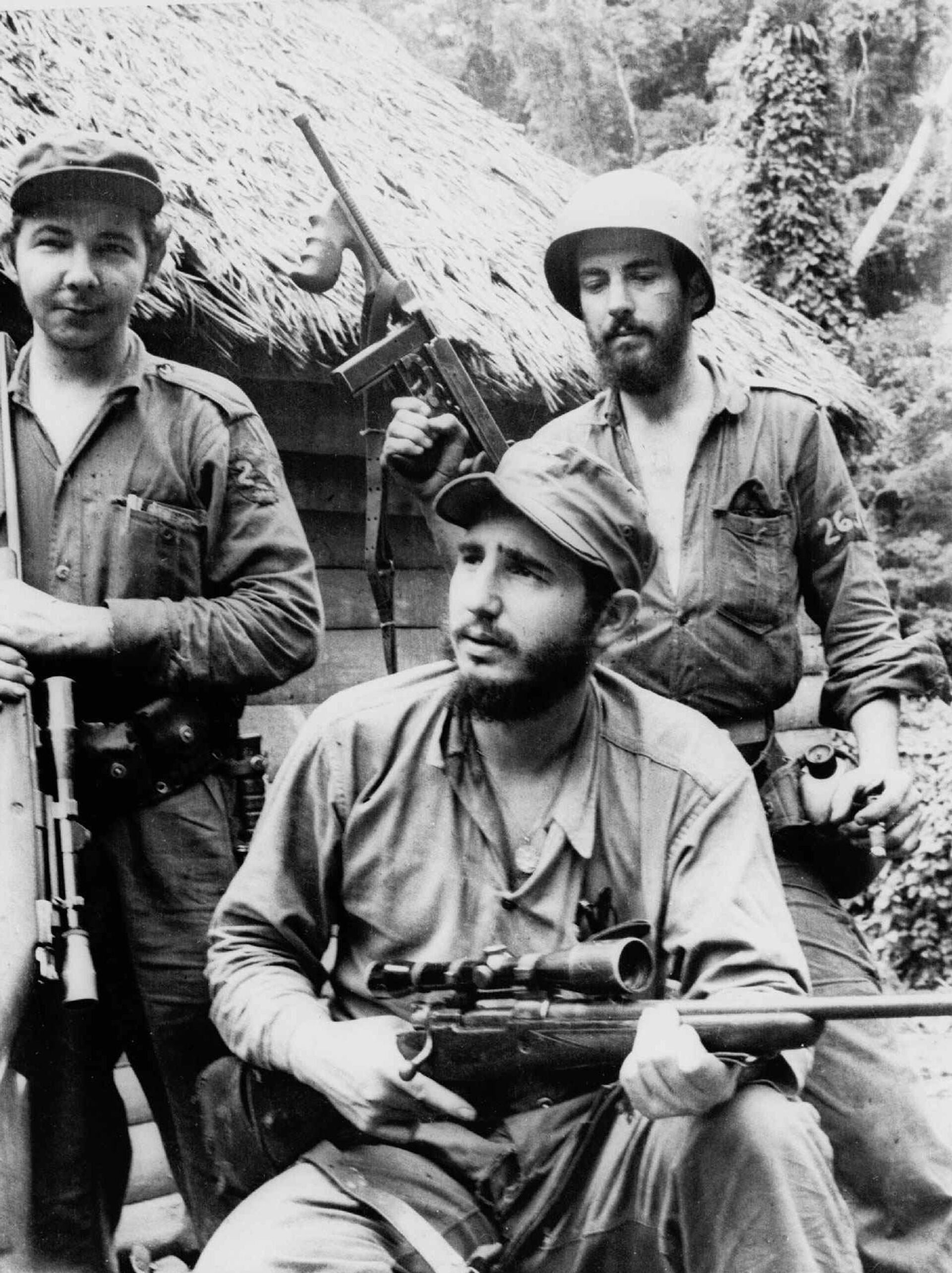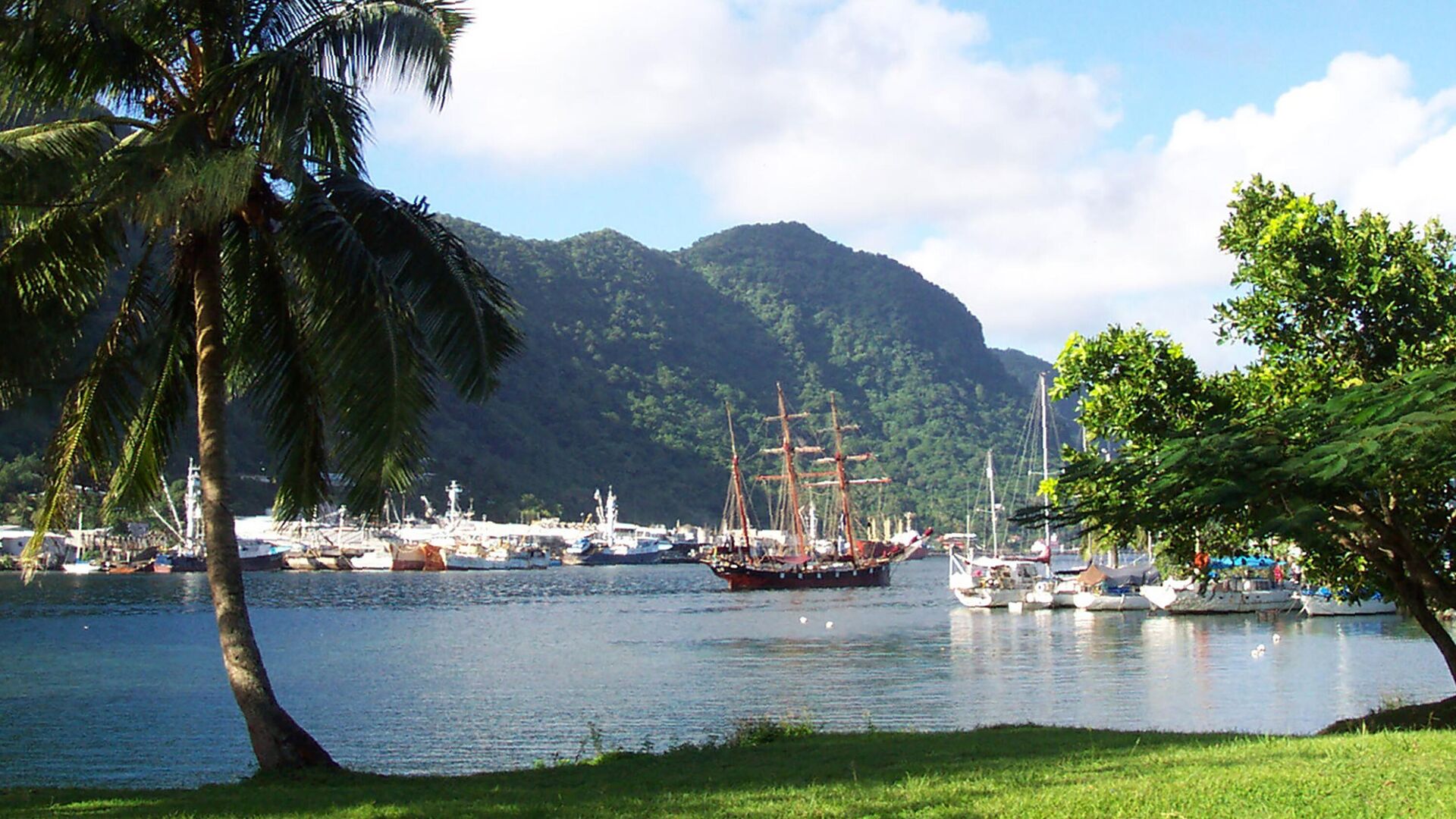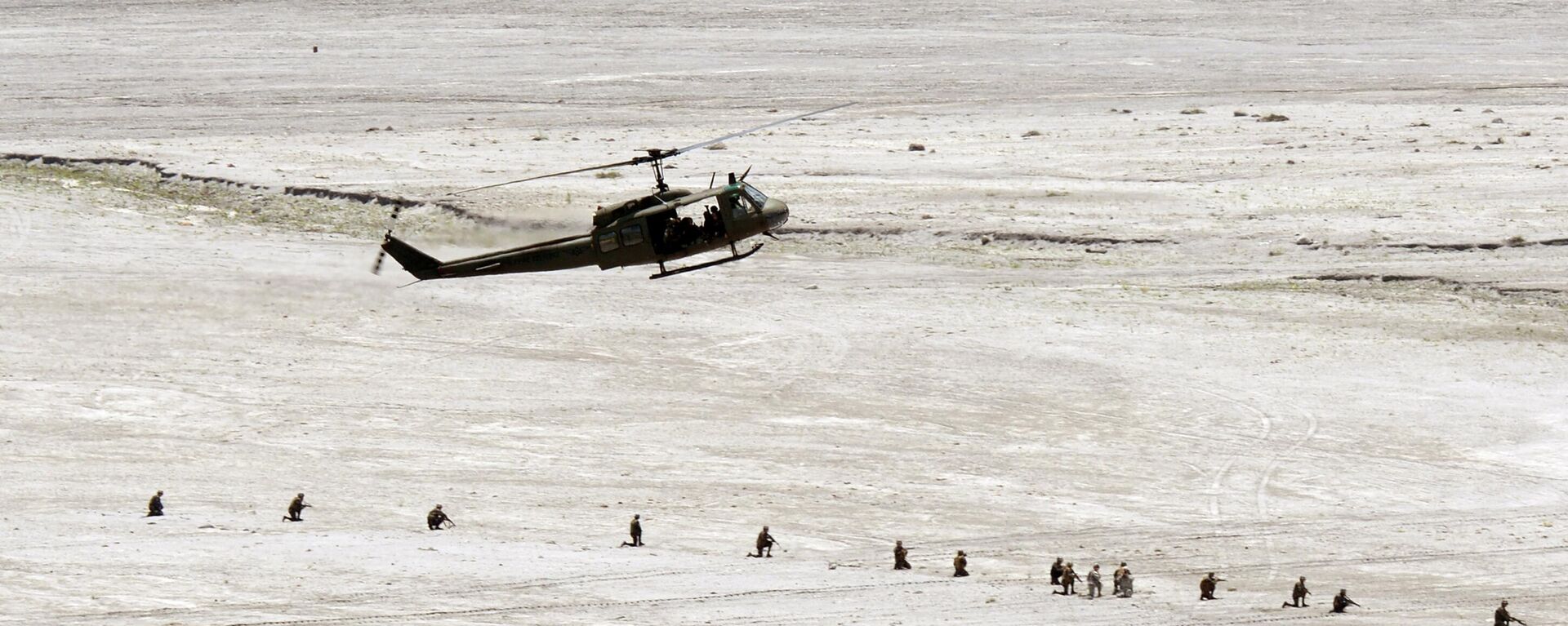https://sputnikglobe.com/20250112/brute-force-threats--hard-sell-us-overseas-land-grab-1121414713.html
Brute Force, Threats & Hard Sell: US Overseas Land Grab
Brute Force, Threats & Hard Sell: US Overseas Land Grab
Sputnik International
How America’s insatiable hunger for power drove its overseas expansion.
2025-01-12T15:42+0000
2025-01-12T15:42+0000
2025-01-12T15:42+0000
world
us
pacific ocean
caribbean sea
pacific ocean
panama canal
philippines
hawaii
cuba
american samoa
https://cdn1.img.sputnikglobe.com/img/07e9/01/0c/1121415655_0:160:3072:1888_1920x0_80_0_0_ca088642b75864d5bc7d0251a99112dc.jpg
The US expansion beyond North America started with the 1856 Guano Islands Act.United States Minor Outlying IslandsIt laid claim to uninhabited islands containing guano fertilizer. Remaining claims, including Baker Island and Jarvis Island (unincorporated territories) in the Pacific Ocean and Palmyra Atoll (an incorporated unorganized territory) in the Caribbean Sea, are collectively known as the USMOI.Transacted TerritoriesPanama CanalA US contrived coup forced Panama to break away from Colombia and accept a payoff for a strip of land to build the strategic canal, jurisdiction over which was restored to the Republic of Panama in 1999.Corn Islands (Caribbean Sea)Cash-strapped Nicaragua was swayed to lease the islands in 1914 so the US could build an alternative to the Panama Canal linking the Atlantic and Pacific oceans, but the project was dead in the water and the deal scrapped in 1971.Philippines (Pacific Ocean)Spain sold its colony the Philippines to the US for $20 million after its defeat in the Spanish-American War of 1898. The Jones Act of 1916 promised Manila eventual independence, which it had to wait 30 years to get.Unincorporated American territory Virgin Islands (Atlantic Ocean)The US pressured Denmark to sell the islands of Saint Thomas, Saint John, and Saint Croix for $25 million in gold coin by threatening a military attack on the neutral nation during World War I.Land Grabs by ForceHawaii (Pacific Ocean)The lucrative sugar cane trade whetted the appetites of a bunch of US businessmen in Hawaii, who staged a coup in 1893, deposing Queen Liliuokalani with US Navy support. Hawaii went from annexation as a US territory to America’s 50th state.CubaThe US nabbed Cuba, coveted for its sugar, tobacco, rice, and coffee, after Spain renounced its rights to the colony under the Treaty of Paris. Despite the1901 Platt Amendment granting it formal independence, a corrupt rule catering to US interests continued until Cuba’s 1959 revolution.GuantanamoIn 1903, Washington leased land surrounding Guantanamo Bay from the US-installed Cuban puppet government in perpetuity for its naval stations, with the Guantanamo base prison spawning a dark legacy of abuse and unlawful detention.US Territory Guam (Pacific Ocean)The US annexed the strategically located Spanish colony of Guam during the Spanish-American War in 1898, with the island’s governor surrendering in less than 30 minutes, according to historical docs.Unincorporated US territory American Samoa (Pacific Ocean)American Samoa is the result of the Second Samoan Civil War and dealmaking between the US, UK, and Germany in 1899 to settle rivalries by splitting the archipelago between them.Unincorporated US territory Puerto Rico (Caribbean Sea)US victory in its war with Spain compelled Madrid to relinquish claims on Puerto Rico, of value to Washington both as a manufacturing hub and as a key naval station. The territory has a strong political movement advocating integration as the 51st US state.
https://sputnikglobe.com/20240422/expansive-us-philippines-war-games-slammed-by-china-as-tension-stoking--muscle-flexing-1118052253.html
https://sputnikglobe.com/20241217/why-is-us-beefing-up-its-military-grip-on-guam-and-other-unincorporated-territories-1121197250.html
pacific ocean
hawaii
cuba
american samoa
caribbean
puerto rico
Sputnik International
feedback@sputniknews.com
+74956456601
MIA „Rossiya Segodnya“
2025
News
en_EN
Sputnik International
feedback@sputniknews.com
+74956456601
MIA „Rossiya Segodnya“
Sputnik International
feedback@sputniknews.com
+74956456601
MIA „Rossiya Segodnya“
what are united states minor outlying islands, how has us expanded overseas, which countries did us but overseas, which countries did us seize by force, when did us own panama canal, did us own panama canal, when did us control corn islands, how did us buy the philippines, how did us seize hawaii, who owns guam, why does us need guam, what to know about guantamo bay, who owns guantamo bay, what is status of puerto rico, will puerto rico become us state
what are united states minor outlying islands, how has us expanded overseas, which countries did us but overseas, which countries did us seize by force, when did us own panama canal, did us own panama canal, when did us control corn islands, how did us buy the philippines, how did us seize hawaii, who owns guam, why does us need guam, what to know about guantamo bay, who owns guantamo bay, what is status of puerto rico, will puerto rico become us state
Brute Force, Threats & Hard Sell: US Overseas Land Grab
As US President-elect Donald Trump mulls claims to Greenland, the Panama Canal, and Canada, let’s recall how America’s insatiable hunger for power drove its overseas expansion.
The
US expansion beyond North America started with the 1856 Guano Islands Act.
United States Minor Outlying Islands
It laid claim to uninhabited islands containing guano fertilizer. Remaining claims, including Baker Island and Jarvis Island (unincorporated territories) in the Pacific Ocean and Palmyra Atoll (an incorporated unorganized territory) in the Caribbean Sea, are collectively known as the USMOI.
A US contrived coup forced
Panama to break away from Colombia and accept a payoff for a strip of land to build the strategic canal, jurisdiction over which was restored to the Republic of Panama in 1999.
Corn Islands (Caribbean Sea)
Cash-strapped Nicaragua was swayed to lease the islands in 1914 so the US could build an alternative to the Panama Canal linking the Atlantic and Pacific oceans, but the project was dead in the water and the deal scrapped in 1971.
Philippines (Pacific Ocean)
Spain sold its colony
the Philippines to the US for $20 million after its defeat in the Spanish-American War of 1898. The Jones Act of 1916 promised Manila eventual independence, which it had to wait 30 years to get.
Unincorporated American territory Virgin Islands (Atlantic Ocean)
The US pressured Denmark to sell the islands of Saint Thomas, Saint John, and Saint Croix for $25 million in gold coin by threatening a military attack on the neutral nation during World War I.
The lucrative sugar cane trade whetted the appetites of a bunch of US businessmen in Hawaii, who staged a coup in 1893, deposing Queen Liliuokalani with US Navy support.
Hawaii went from annexation as a US territory to America’s 50th state.
The US nabbed
Cuba, coveted for its sugar, tobacco, rice, and coffee, after Spain renounced its rights to the colony under the Treaty of Paris. Despite the1901 Platt Amendment granting it formal independence, a corrupt rule catering to US interests continued until Cuba’s 1959 revolution.
In 1903, Washington leased land surrounding Guantanamo Bay from the US-installed Cuban puppet government in perpetuity for its naval stations, with the Guantanamo base prison spawning a dark legacy of abuse and
unlawful detention.
US Territory Guam (Pacific Ocean)
The US annexed the strategically located Spanish colony of Guam during the Spanish-American War in 1898, with the island’s governor surrendering in less than 30 minutes, according to historical docs.
Unincorporated US territory American Samoa (Pacific Ocean)
American Samoa is the result of the Second Samoan Civil War and dealmaking between the US, UK, and Germany in 1899 to settle rivalries by splitting the archipelago between them.
Unincorporated US territory Puerto Rico (Caribbean Sea)
US victory in its war with Spain compelled Madrid to relinquish claims on Puerto Rico, of value to Washington both as a manufacturing hub and as a key naval station. The territory has a strong political movement advocating integration as the 51st US state.
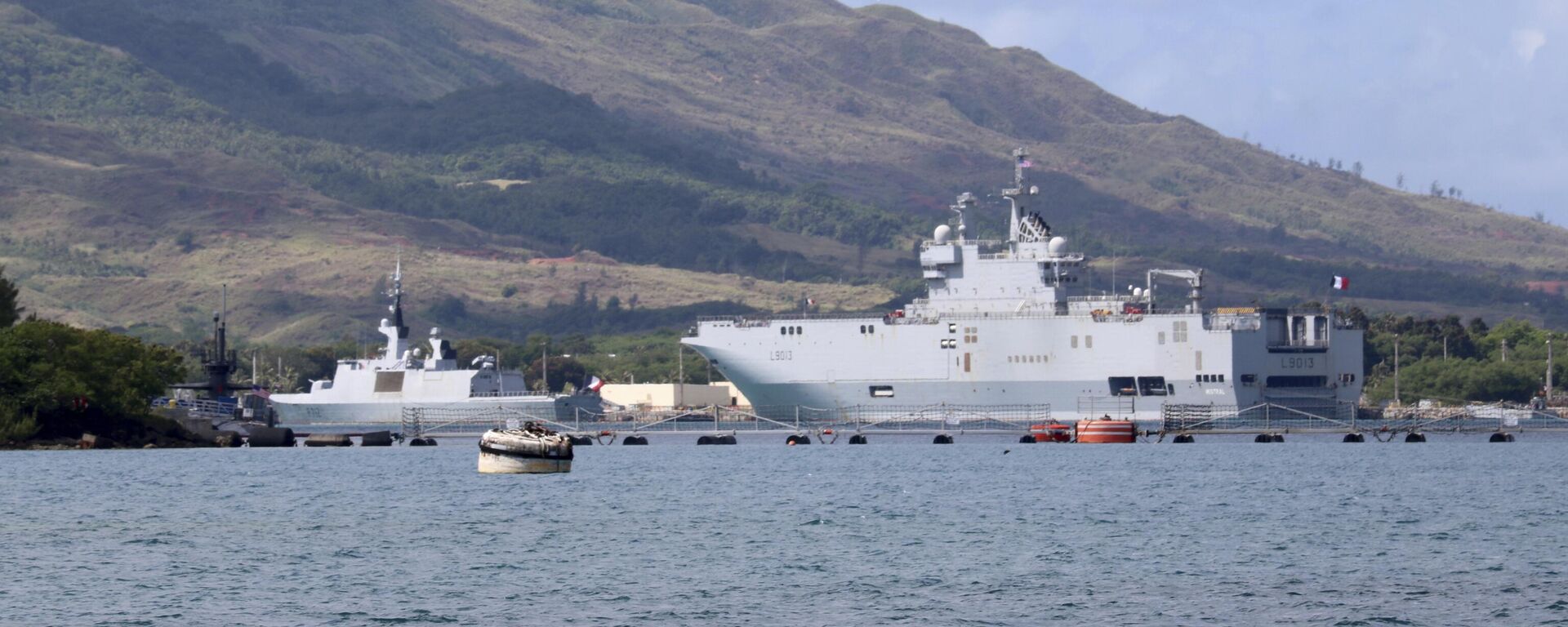
17 December 2024, 12:49 GMT
